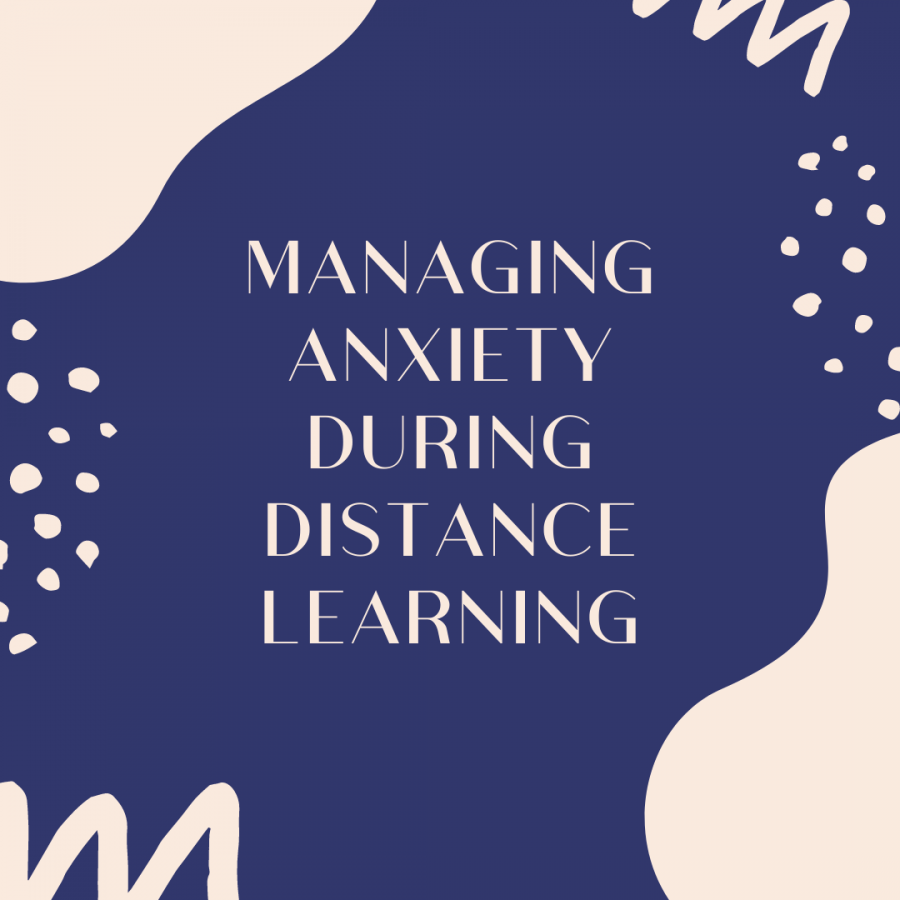Managing Anxiety During Distance Learning
November 24, 2020
Students with anxiety have faced extreme difficulties adapting to the drastic changes introduced since the lockdown. This has become a major roadblock in the newly digitized learning environment, making it more important than ever to have access to adequate mental health resources.
Stressors such as heavy workloads, assessments, and general in-class participation can lead students to feel helpless and overwhelmed. It’s important that, during this period, they have a solid support system in place to mitigate the strain being placed on them.
“Many of the activities students once loved have been postponed or drastically changed,” sophomore Lucy Sampson said. “These activities are what got me through school, and without them work is much more difficult to complete.”
It can be tough to advocate for your emotional wellbeing, especially considering the adverse circumstances we find ourselves in. If you feel comfortable, a good place to start is by taking advantage of the school’s many opportunities for mental health guidance and support.
“Teachers, counselors, PEER, Unified Mental Health Team, students, and parents can be tremendous resources for students,” School Counseling Director Tim Lucas said. “The most important thing is to utilize the resources that work best for you.”
Organizations such as Sources of Strength, which have groups of caring peers and teachers across the nation, are working diligently to help students suffering from anxiety manage the symptoms they have been experiencing. Their central symbol, the Wheel, encourages students to explore what gives them personal strength during times of stress and uneasiness.
“It’s really important that people hear that it’s okay not to feel okay all the time,” Sources of Strength Creativity and Wellness Coordinator Mish Moore said. “Sometimes life comes along and knocks us off our feet, often through no fault of our own.”
Simplified approaches to anxiety alleviation can prove to be particularly effective, considering how easy they are to implement and maintain. It may be beneficial to try and restructure your personal routines so as to prioritize your mental and emotional wellbeing.
“My recommendation would be to find what works best for you,” Lucas said. “There are some basic strategies, including managing your time, planning and scheduling using a calendar or agenda, utilizing resources … being the best version of you!”
Daunting as it may be, the stress we’re currently experiencing is unique and temporary. It’s incredibly important to maintain a hopeful outlook, if possible, and pay attention to your physical and emotional needs.
“You are facing events that no one else has faced before, and I know that you can move through this with strength,” Moore said. “The truth is, we have a choice to make: will we just try to survive this difficult time, or will we learn into our strengths and support one another as we find ways to thrive?”



